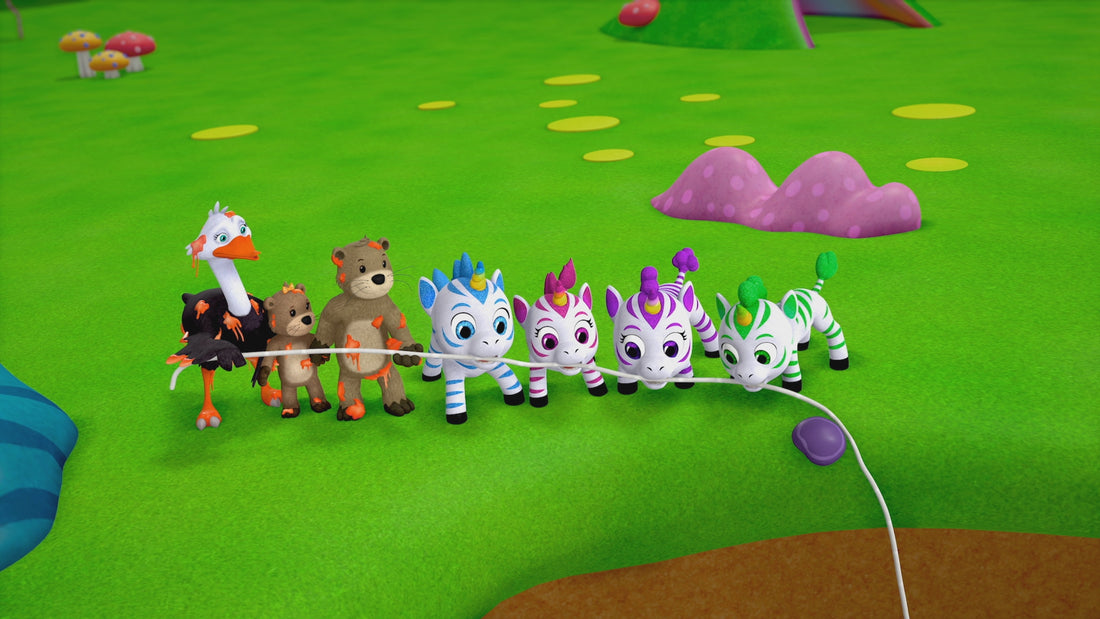
Learning To Work with Others
Written by Natascha Crandall, PhD. - Educational Curriculum Consultant

Playing with others is an important activity which contributes to the overall social and emotional wellbeing of young children. Children discover and learn about their world through play. Play helps them learn fundamental social rules such as waiting, taking turns, cooperating, and sharing. It develops their imagination and creativity and gives them opportunities to practice the skills they will need as they go out into the world. Learning through play naturally occurs in every “Zoonicorn” episode.
Children move through various stages of play as they grow. They often begin by playing by themselves and then to playing next to another child. This form of play, called Parallel Play, occurs when children play alongside each other and engage in similar, or entirely different activities. They may interact, yet one child’s play is not dependent on the others. Even though they may seem independent from these other children, and uninfluenced by their presence or behavior, that form of contact between children is very important to them.
As they get older, and enter their preschool years, they begin to learn how associate, or play WITH another person. Suddenly, others have opinions and want to do things differently than they do. Sharing a favorite toy isn't easy, and neither is agreeing on what to play or how to play it. They are now forced to figure out how to work well with others. During the Associative Play stage, children will play with one another but do not organize their play toward a common goal. Children may be talking, laughing, and playing together but have totally different ideas about the outcome of the game they’re each playing.
The next stage, termed Cooperative Play is interactive and social. Learning to share, engage with others, and take turns are important developmental milestones as children begin to express and share ideas with their peers. As children get older and begin to interact more, cooperative play becomes increasingly important. Cooperative play provides the fundamentals they’ll need later to collaborate and cooperate at school and in other social settings, such as sports.
Parents play a big role in helping to shape these developmental milestones. Adult guidance is needed as children begin to grasp the concept of various social skills. You can encourage cooperative play by example and introduce the concept of collaborative problem solving. Play games that require taking turns, discuss assigning roles within play, and encourage communication and feedback as this will help model the language used to get through difficult moments to keep the play alive.
Social-emotional skill development is core to every “Zoonicorn” episode. Our characters, Promi, Ene, Valeo, and Aliel, model collaborative problem solving and to help guide children in how to solve problems in their own lives. We attempt to show that disagreements are common, but that these disagreements also lead to healthy discussions where everyone gets to share their ideas, and in the end the solution is better than any one character could have come up with on their own. By teaching children that disagreements are normal and can be overcome, they will experience less frustration and become more resilient to the problems that come up in any Cooperative Play experience, thereby helping further their social-emotional skill development.
